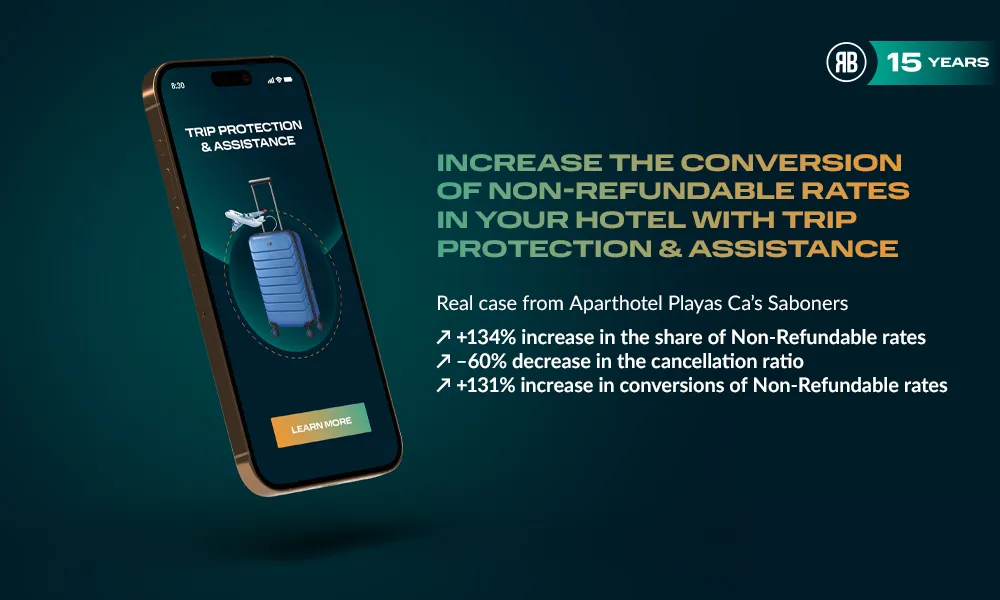5 Sustainable Tourism Strategies | Local Economic Development
News
September 13, 2023

September 27th is World Tourism Day, an important date to reflect on the impact of this industry on our communities and the natural environment.
This year, the World Tourism Organization (UNWTO) frames this day under the slogan "Tourism and Green Investments", thus highlighting the urgent need to make investments that are more aligned with the interests of people, the well-being of the planet, and the promotion of prosperity.
Tourism is a powerful tool that can significantly contribute to local economic development, but it can also be a threat to sustainability if not managed properly. In this article, we will explore 5 sustainable tourism strategies that have proven to be effective in promoting local economic development, and highlight real success stories where investment in local communities and preservation of the environment have led to sustainable growth in tourism in Spain.
1. Investment in local communities through responsible hospitality
One of the fundamental pillars of sustainable tourism is investment in local communities. Hotel companies can play an essential role by working closely with nearby communities to promote local economic development. This involves hiring local staff, purchasing products and services from local suppliers, and actively participating in community development projects.
An inspiring example, increasingly widespread throughout our territory, is that close relationship established between tourist accommodation and small towns and villages. The hotel in question not only employs local residents but also buys fresh produce from local farmers and offers its guests the opportunity to participate in cultural and craft activities that directly benefit the community.
Investing in local communities has generated a sense of belonging and has contributed to the sustainable economic growth of the region.
2. Promote rural tourism and connection with nature
Rural tourism and connection with nature have become a growing trend in Spain and are a powerful way to attract environmentally conscious travelers while boosting local economic development. Hotels can promote rural tourism experiences by offering accommodations in natural settings and activities that allow visitors to connect with the natural beauty of the region.
A prominent example of this strategy is found in the Sierra de Grazalema, in Andalusia. In this area of stunning beauty, rural hotels have adopted sustainable practices and offer visitors the opportunity to explore nature trails, participate in local agriculture, and learn about rural culture. These experiences not only generate income for hotels but also benefit local communities by promoting environmental conservation and responsible tourism.
3. Boost cultural and heritage tourism
Cultural and heritage tourism is an effective strategy for promoting local economic development through hospitality. Spain is rich in cultural and historical heritage, and hotels can play an important role in facilitating visitors' access to our cultural gems.
A prominent example is the city of Toledo, in the autonomous community of Castilla-La Mancha. This historic city has attracted visitors from all over the world due to its cultural and architectural richness. Hotels in Toledo have worked closely with local authorities to offer tourist packages that include visits to museums, historical monuments, and cultural activities. This strategy has not only boosted the local economy but has also contributed to the preservation of the city's cultural heritage.
4. Promote local and sustainable gastronomy
Gastronomy is a fundamental part of Spanish culture and can be a powerful engine for sustainable tourism. Hotels can highlight local and sustainable cuisine by offering menu options that include fresh ingredients and locally sourced products. In addition, they can collaborate with local restaurants and markets to promote local gastronomy.
An inspiring example comes from the island of Mallorca, in the Balearic Islands. There, hotels have established partnerships with local farmers and organic food producers to supply their kitchens. In addition, they offer guests the opportunity to participate in culinary experiences, such as olive harvesting or cheese making, which promotes local gastronomic culture and benefits local producers.
5. Adopt sustainable construction and operation practices
Sustainability in the construction and operation of hotels is essential to preserve the environment and reduce environmental impact. The adoption of sustainable practices, such as energy efficiency, water management, and waste reduction, not only benefits the environment but can also generate significant long-term savings.
A relevant example is the commitment that more and more tourist accommodations and destinations are implementing thanks to their adherence to sustainable certification bodies such as Bioscore Sustainability. The Valencian startup provides the team with efficient water management systems, reducing their carbon footprint and operating costs. In addition, it offers other services such as circularity diagnosis based on the characteristics of the accommodation, development of sustainability reports, as well as specialized technical advice on sustainability. These tools not only contribute to the preservation of the destination and its people but also attract travelers committed to sustainability.
On World Tourism Day, it is essential to recognize the fundamental role that sustainable tourism plays in local economic development in Spain. The strategies mentioned, ranging from investment in local communities to the promotion of sustainable gastronomy and the adoption of sustainable construction and operation practices, exemplify how the hotel industry can contribute to equitable economic growth while preserving Spain's rich natural and cultural environment.
Sustainable hospitality is not only a profitable long-term option for entrepreneurs and hoteliers, but it also benefits local communities by creating employment, promoting the conservation and preservation of their heritage and culture, and generating sustainable income. By embracing these strategies and promoting responsible tourism, Spain can remain an attractive destination for environmentally conscious travelers and contribute to local economic development in a sustainable manner.
Read more







